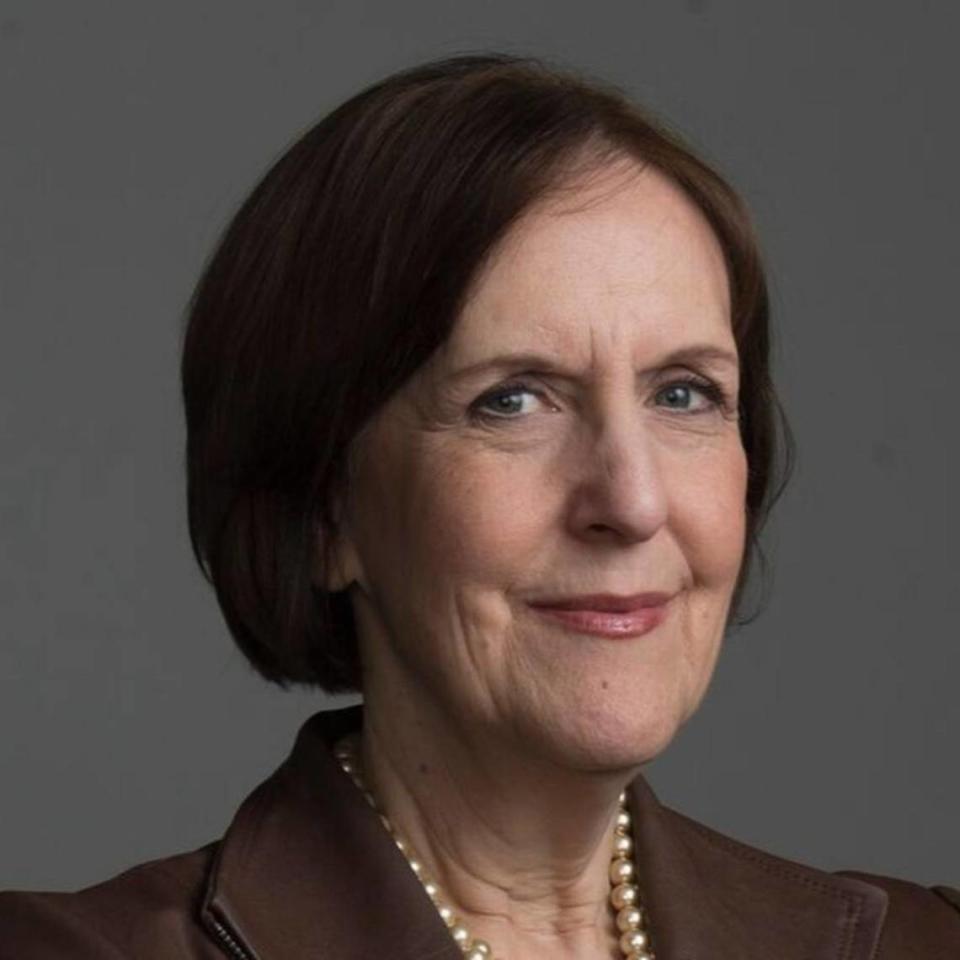The young are losing faith in democracy. Here’s what to do about it. | Opinion
- Oops!Something went wrong.Please try again later.
- Oops!Something went wrong.Please try again later.
At this point, it should no longer be surprising that Donald Trump’s supporters are unfazed by anything he says, no matter how outrageous.
My colleague Marianne LeVine talked to audience members at a Trump event in Iowa recently about the former president’s promises that he would govern as a retribution-seeking authoritarian if he returns to the White House. They shrugged it off and, more disturbing, some said they would welcome a strongman who tramples democracy.
To some, this was just Trump being Trump. They said his repeated vow to govern as “a dictator for one day” was a joke. Others echoed Trump’s claim that it is President Biden who is the real threat to democracy.
It’s questionable how much the urgent warnings that the country could be “sleepwalking into dictatorship,” as former congresswoman Liz Cheney put it, will resonate in the 2024 election.
In and of itself, “it’s unlikely to be a tremendously impactful argument,” says Matt Bennett of the center-left think tank Third Way. But take a step back from the tactical question of how much all of this will matter next November and consider a different one: How much do Americans really care about democracy?
The disturbing answer: Less and less, especially among the young.
Over the past few decades, there has been “a small but steady erosion of support” for democracy, not only in the U.S. but around the world, says Eric Plutzer, the political scientist who directs the Mood of the Nation Poll for Penn State University’s McCourtney Institute for Democracy.
The latest survey, taken in November 2022, found that 78% of those surveyed said democracy is “the best political system in all circumstances.” But among the Gen Z cohort, ages 18 to 25, nearly half answered either that it “makes no difference” whether they live under a democracy or a dictatorship (28%) or that “dictatorship could be good in certain circumstances” (19%). More than a third of millennials 26 to 41 agreed with one of those statements.
Plutzer notes that this comports with polls going back to the 1990s. “Young people have always been less enthusiastic about democracy,” he said. “But the generation gap has really exploded.”
Part of the explanation is that younger voters did not live through World War II or the Cold War, when authoritarianism seemed to threaten the survival of the planet. Instead, they have experienced a gridlocked political system that has been incapable of delivering solutions to the problems, whether it’s climate change or school shootings.
It’s true that the Jan. 6, 2021, ransacking of the U.S. Capitol by Trump supporters to overturn the most recent presidential election has made it clear what happens when the basic processes of democracy are undermined. But for Americans, including the young, who are less engaged and more disillusioned with the political system, the implications of what Trump is talking about — such as weaponizing the Justice Department against his enemies — seem hypothetical and abstract.
That said, we have also seen recently how concrete issues can bring younger voters to the fore. In Ohio’s November elections, a CNN exit poll found they gave far stronger support than their elders for making abortion a protected right in their state constitution and for legalizing recreational marijuana.
A Biden campaign official said the president’s team understands that democracy becomes a potent issue only when voters understand it in the context of having their rights taken away, as has already happened with abortion, thanks to the Trump-appointed justices on the Supreme Court.
“It’s an exercise in storytelling,” he told me. “The tragedy about the abortion issue is there really are a lot of sad stories to tell.”
Trump is also telling a story. He could hardly be clearer about what he will try to do, if given the opportunity. Democracy might be looking pretty ragged these days, but Americans should take seriously their responsibility to preserve what’s left of it.
Karen Tumulty is an associate editor and columnist covering national politics at the Washington Post.


